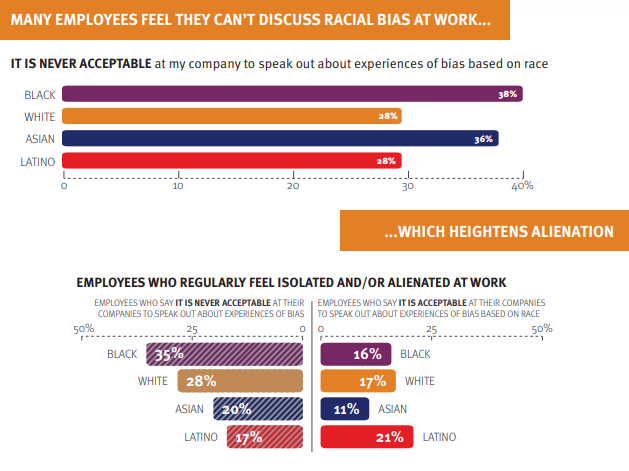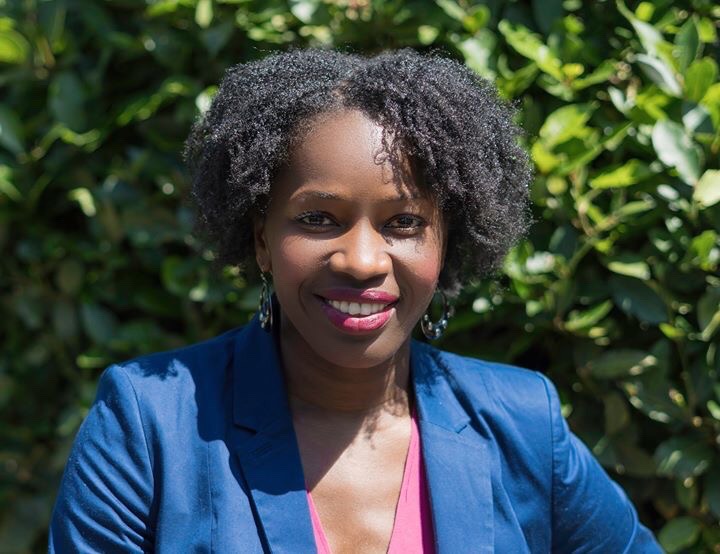Global Business and The Reasons Why We Need to Talk About Race in The Workplace
Maria’s intro:
Dear readers,
Those who’ve visited the blog in the past few days might have noticed that a new section - Introductions to Culture Clusters - is now live: while this isn’t strictly a blog about Diversity & Inclusion, we cannot have meaningful and stimulating conversations about global business and national culture(s) without talking about race.
An article shared by Al Jazeera in 2019 reported that “In the United Kingdom, a 2018 survey by the Chartered Institute of Personnel and Development found that Black, Asian, and minority ethnic groups are significantly more likely than their white British counterparts to say that they need to change aspects of their behaviour to fit in. This is especially true of those from Indian, Pakistani, or Bangladeshi backgrounds”, while “across the pond, a 2017 study by the US-based Center for Talent Innovation determined that more than a third of Black and Asian workers surveyed don't feel their workplace is conducive to conversations about race. Less than a third of Latino and white workers felt the same way.”

(Image Source: Easing Racial Tensions At Work)
The article does also mention that “a 2014 survey from The Energy Project and Harvard Business Review concluded that most employees are working at only 42 percent of their capacity, meaning millions are going to work every day depleted, disengaged and emotionally stressed, which decreases their productivity.”
With regard to the need for open conversations about race, this week I’d like to introduce you to author, speaker, and blogger Mildred Talabi and to an article she’s recently published on her blog, reposted here below:
***
We Need to Talk About Race
It was lunchtime and I was hungry.
I went into the staff room with my packed lunch.
To be honest, I was having a late lunch that day partly because it was a busy day, but also because I wanted to avoid the rush hour crowd and eat on my own.
I opened the door and one of my colleagues was already sitting there, halfway through her lunch.
I gave her the ‘oh no, you had the same idea as me’ smile, and she returned the same. Since we had both failed at avoiding others, we had no choice but to make small talk.
“How was your weekend?” She asked.
“Pretty good,” I responded, giving her some vague headline account of what I got up to.
It was only right that I returned the courtesy and ask her how her weekend was. So I did.
“Excellent, actually,” she responded. “I’m completely knackered as I’ve just completed the London to Brighton bike ride.
“Oh really?” I asked. This time with genuine interest (I do like a bit of a sporting challenge).
She then proceeded to tell me how it was – the training, the preparation, the weather, the environment, the crowds… and then she paused and asked me a question that caught me off guard.
"I don’t mean to be funny, but…”
“You know,” she said, “I don’t think I saw any black people the entire time I was there. I definitely didn’t see any black cyclists. I don’t mean to be funny, but do black people cycle?”
This colleague was female, white, middle-aged and middle-class. We both worked in an office space and in an organisation where the number of people of colour could be counted on one hand (literally…I counted), and in a region which was predominantly white.
For a moment I paused, thinking of how best to respond to this question. I searched her face to try to figure out what her intent was so I could use this as a guideline. Was she being offensive? Ignorant? Or just genuinely curious?
I decided to give her the benefit of the doubt and lean on the side of curiosity.
“Of course, black people cycle!” I responded. “I used to cycle!”
I then proceeded to give her my own personal cycling history (I had a season of commuting to work by bike whilst living in London), the accounts of many black people I know who are into cycling, and a cultural history of how certain sports are practiced more by certain cultures, and so on.
By the end of that half-hour lunch period, we both left the conversation as friends with a new common ground.
She thanked me for educating her on the subject, and I thanked her for the courage to ask me the question in the first place.
Her question initiated a healthy dialogue on race and led us both to a mutual understanding of each other and mutual honour of the cultures we both came from.
This here, is an example of The Third Option in practice.
We need to talk about race.
Race or racism is about as divisive a topic as you can get.
You don’t have to look far in mainstream media to find instances of race division and racism playing out – whether it’s in the ‘controversial’ views of an elected president, a black footballer being subjected to monkey chants, or the perceived lesser treatment of a British royal based on skin colour.
Bringing it closer to home, most of us can recall an instance, a conversation, or an occasion where race has entered our thought process in some way. For some, this is the reality on a day-to-day basis.
“The Third Option” is a book by Miles McPherson, a former NFL player and the pastor of one of the most ethnically diverse churches in America (if you know anything about churches, you’ll know that this is truly a miraculous feat as most churches are as segregated as can be).
The book addresses the topic of race and racism in a way that is intended to breed understanding, not debates; to unify, not divide.
We need to talk about race.
When it comes to race and racism, often the easiest option is to avoid talking about it – especially with people from a different racial background to yours – and hope that by doing so, it will somehow go away by itself.
Another option is to argue about it; to choose a side between “us” and “them” and draw a line in the middle.
McPherson offers a third option in his book – the option of viewing each other as divinely created human beings and honouring our unique differences in this light.
This is what can happen when we allow ourselves to talk about race.
My conversation with my white colleague that day changed both of us for the better. I believe the same can happen in offices, neighbourhoods, boardrooms, and even online networks all across the world once we start talking about race openly and respectfully with people who don’t look like us.
“The Third Option” is a really important book with a timely message, many eye-opening moments, and helpful practical actions that if we all followed, will help to heal the racial divide that plagues our society today.
Everyone needs to read this book, and I mean everyone.
And if the subject of the book makes you uncomfortable, it’s probably a sign that you need to read it the most.
***
Maria’s final notes:
As Mildred observed, “race or racism is about as divisive a topic as you can get”, but it is fundamental that we learn how to deal with the elephant in the room in order to “function” properly in a diverse, international, multicultural society.
Going forward I’m planning to share more articles and different perspectives on how both racism and ethnocentrism affect workplace interactions, but in the meantime I leave you with a short list of reading material to check if interested in learning more about those topics:
- Kenroi’s Consulting blog, for those especially interested in the area of Diversity & Inclusion;
- “The weirdest people in the world?” and “Exploring Ethnocentrism in Business Courses and Businesses” for those especially interested in understanding the implications of ethnocentrism in the global environment.
***
Mildred Talabi’s Bio and Contact Info:

Mildred Talabi specialises in helping mid to senior-level professionals change jobs or careers via CV and LinkedIn profile makeovers, job search support and more. She is also an author and speaker, and blogs about culture, careers, life, and everything in between, at www.mildredwrites.com.
Personal LinkedIn profile: https://www.linkedin.com/in/mildredtalabi
Background vector created by macrovector - www.freepik.com

